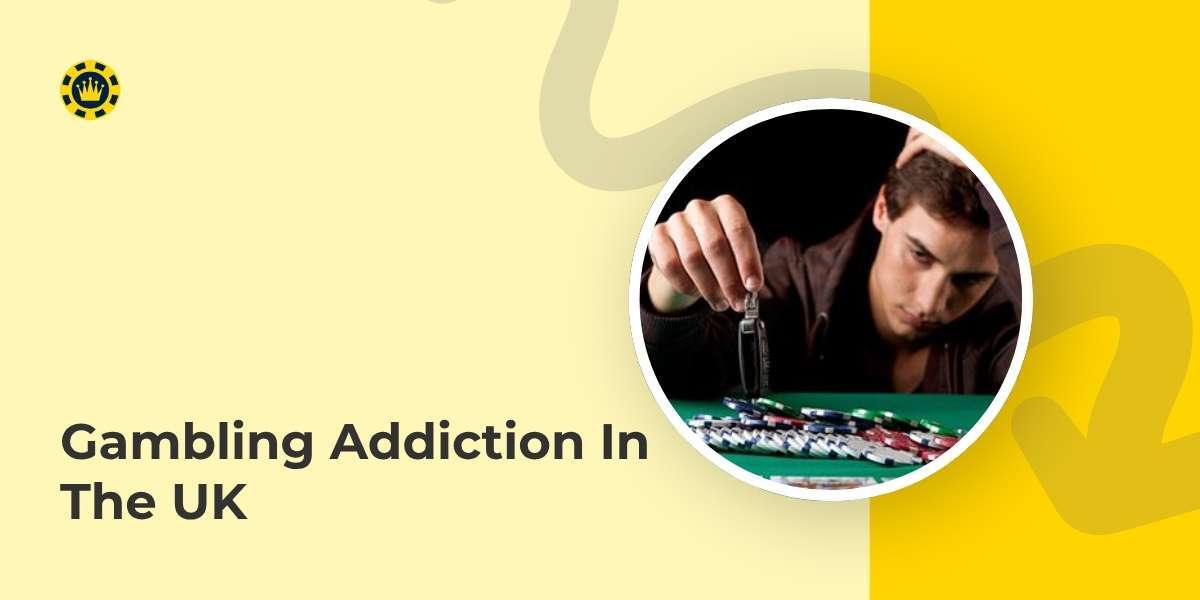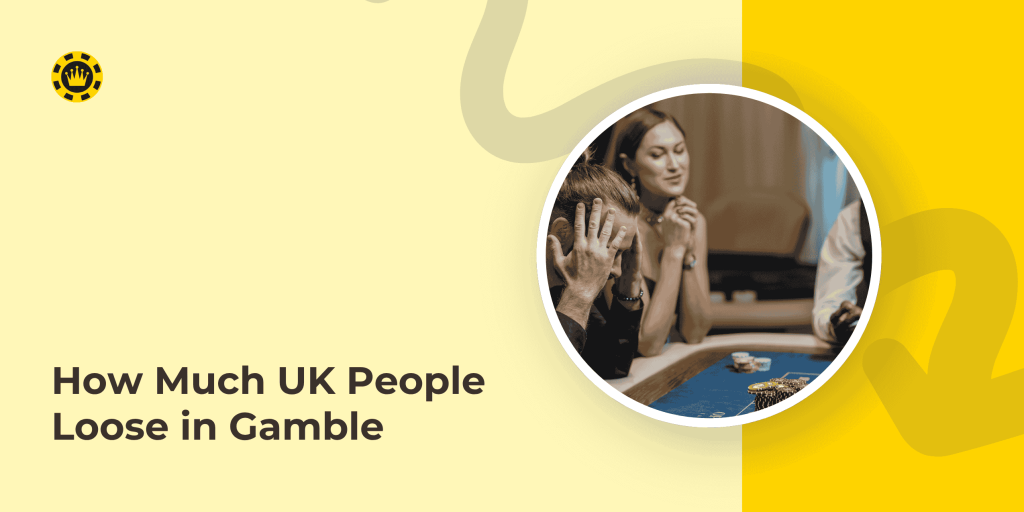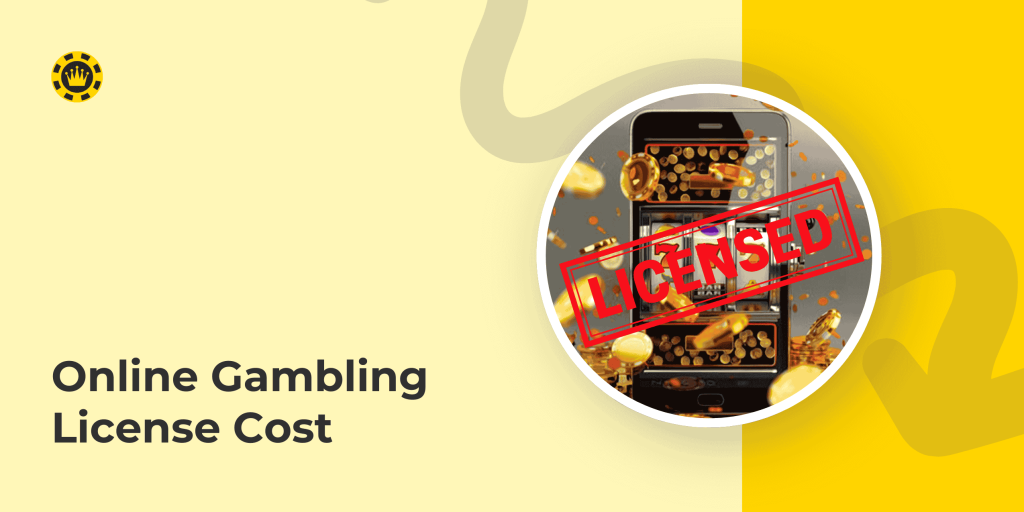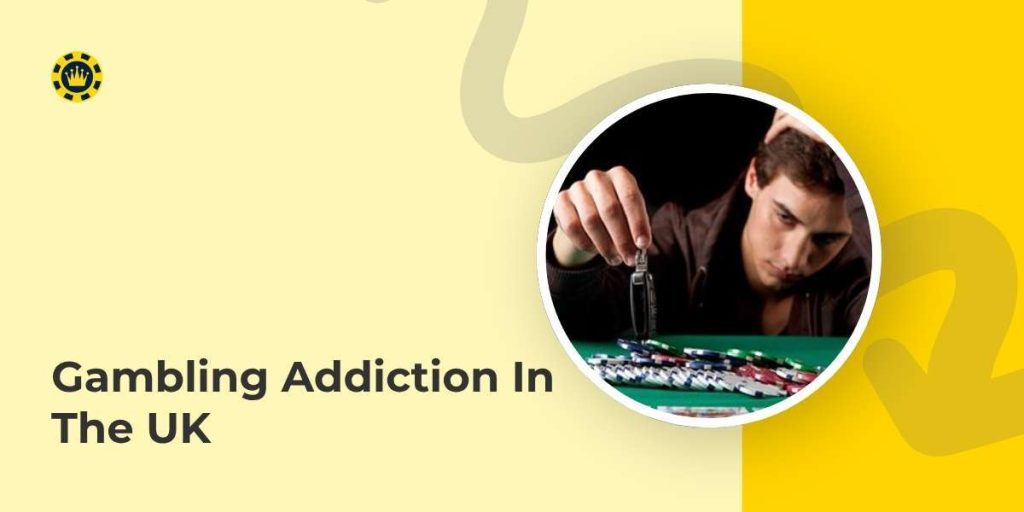Gambling Addiction in the UK remains a serious issue in 2026, affecting millions of people across the country. Its impact is felt not only by individuals, but also by families, communities, and public services.
Recent gambling addiction UK statistics show that about 2.5% of adults experience serious gambling problems. Another 3.8% are at risk, meaning gambling harm affects far more people than those formally diagnosed.
Taken together, UK gambling addiction impacts roughly 6–8% of adults. To address this, the government has expanded NHS clinics and added a £100 million levy to improve gambling support and problem gambling treatment.
However, many people still delay seeking gambling help. Limited awareness of gambling helpline UK options and hesitation to ask for help with gambling problems allow harm to continue across the UK.
Average Gambling Addiction Rates by Age Group
Gambling addiction in the UK skews heavily toward younger age groups. Online access, in-play betting, and aggressive marketing have contributed to disproportionately high rates in youth and young adults.
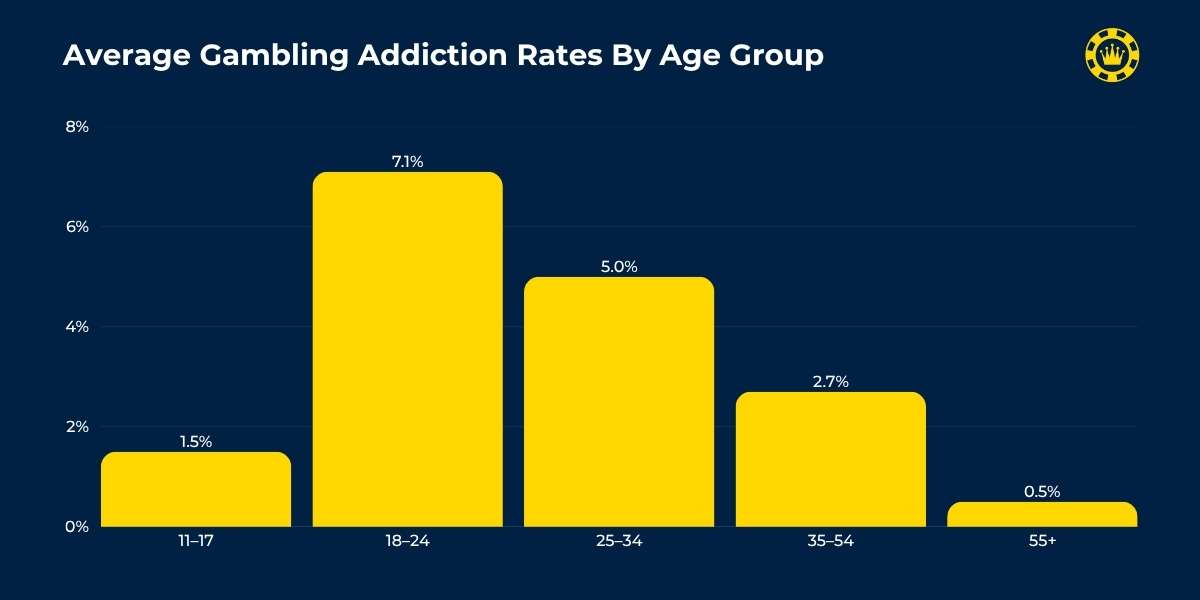
| Age Group | Problem Gambling Rate |
|---|---|
| 11–17 | 1.5% |
| 18–24 | 7.1% |
| 25–34 | 5.0% |
| 35–54 | 2.7% |
| 55+ | 0.5% |
Young people (18–24) are 14 times more likely to suffer from gambling addiction compared to those over 55.
Studies have shown that over 45% of young gamblers spend more than they can afford, and a third have borrowed money to gamble.
Source: SWLonder, Gov.uk
Gambling Addiction in UK Adults & Women
Gambling harm affects a growing number of UK adults.
According to Gov.uk, about 0.5% of the adult population are problem gamblers, 3.8% are at elevated risk, and nearly 7% are harmed by someone else’s gambling.
Among women, rates are lower but still concerning. As per the Gambling Commission, 0.2% of women experience problem gambling, with 0.9% at moderate risk and 1.4% at low risk, mainly linked to bingo, slots, and app-based games used to cope with stress.
Key gender trends:
- 68% of online gambling in the UK is driven by men aged 18–34.
- Among adolescents aged 11–17, boys are 9x more likely to develop gambling problems.
- Cultural exposure, peer norms, and sports marketing disproportionately affect men.
- Women’s problem gambling often coexists with depression or anxiety and is less likely to be detected early.
Source: Gov.uk
Regional Gambling Addiction Rates in the UK
Regional data show strong ties between gambling harm and deprivation:
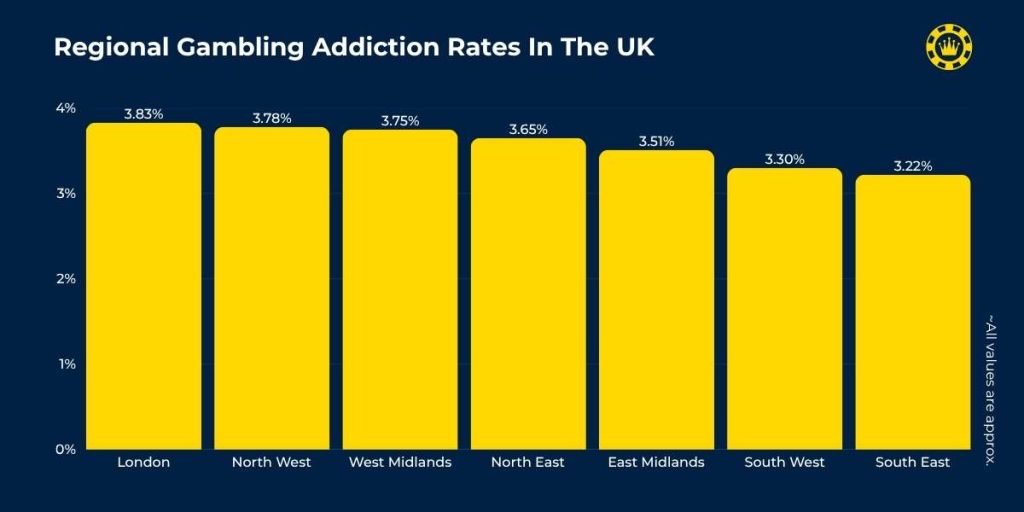
| Region | Problem Gambling Estimate |
|---|---|
| London | ~3.83% |
| North West | ~3.78% |
| West Midlands | ~3.75% |
| North East | ~3.65% |
| East Midlands | ~3.51% |
| South West | ~3.30% |
| South East | ~3.22% |
These regional estimates are derived by comparing the rate per 100,000 population with the national average, based on figures from Gov.uk. They provide a general indication of problem gambling prevalence by area, but should not be viewed as precise percentages.
Source: Gov.UK
Economic Impact of Gambling Addiction in UK in 2026
The UK economy faces an annual cost of £1.05–£1.77 billion due to gambling-related harm, including:
- This year, NHS treatment funding is set to increase to up to £50 million per year via the statutory levy.
- Mental health and suicide-related costs are the largest component, at up to £1.4 billion annually.
- Productivity losses are officially estimated at £77 million per year (unemployment benefits), with broader productivity impacts not fully quantified.
- Criminal justice costs are estimated at £167.3 million per year.
While the £100 million levy helps fund research and treatment, it covers only a fraction of the wider economic burden.
Source: Gov.uk, Insidebitcoin
Socioeconomic Groups Most Affected by Gambling Addiction in the UK
Certain UK populations face heightened vulnerability to gambling in the UK:
- Low-Income & Benefit Recipients: Up to 2x more likely to suffer gambling addiction.
- Manual & Construction Workers: Often overrepresented in betting shop use.
- Students: 17% have used student loans to gamble; ~45% say they gamble to make money.
- Unemployed Individuals: Idle time and financial stress contribute to risk.
- Homeless People: Up to 11% are problem gamblers, nearly 9x the national average.
This demonstrates a substantial overlap between economic precarity and gambling harm.
Major Causes of Gambling Addiction in the UK in 2026
As per the latest data, most gambling addiction cases are driven by 24/7 online access, mental health struggles, and financial stress. Over 60% of problem gamblers report gambling to escape worries or boost income.
1. Digital Access & Gamification
- 24/7 online platforms
- Gamified interfaces with rapid reinforcement
- In-play betting and slots trigger dopamine surges
2. Mental Health & Comorbidities
- Co-occurring depression, anxiety, and ADHD
- Gambling as an escape from trauma or emotional stress
3. Societal Pressures
- Cost-of-living crisis fuels hope of financial relief via gambling
- Social media influencers glamorizing big wins
4. Aggressive Marketing
- Up to 16 gambling messages per Premier League match
- Heavy online targeting of young men
- ASA and DCMS are concerned about saturation-level exposure
Most Common Gambling Types Causing Harm
Certain forms of gambling dominate treatment referrals:
- Online Slots: Over 40% of online gambling revenue comes from slots; 3 in 5 online gamblers seeking help cite slots as a key issue.
- In-Play Sports Betting: High-speed betting during matches is strongly linked to compulsive use.
- Fixed Odds Betting Terminals (FOBTs): Still common in betting shops despite stake caps.
- Esports Betting & Loot Boxes: Blurring of gaming and gambling for under-18s; often a gateway to addiction.
Problem gamblers typically engage in multiple formats, but slots and in-play betting are the most commonly reported in treatment settings.
Treatment and Recovery in 2026
The UK’s support system has scaled up:
- NHS Gambling Clinics: 15 clinics operational; referrals increased from 836 (2023) to 1,914 (2024–25).
- GamCare Helpline: Received 55,228 calls in 2024.
- Gordon Moody: Expanded residential program for women in 2026.
However, less than 10% of problem gamblers seek treatment due to stigma, denial, or lack of awareness.
Gambling Operators Most Linked to Harm
While operator-specific addiction stats aren’t public, market share and user demographics indicate that the following platforms are most cited in treatment contexts:
- Flutter: (Paddy Power, Betfair, Sky Bet) — Known for in-play betting.
- Entain: (Ladbrokes, Coral) — Strong offline and digital presence.
- Bet365: Popular among younger men; offers high-speed betting.
- 888/William Hill: High user base for casinos and slots.
These brands are frequently named by GamCare callers, and their marketing is heavily male-focused.
Sources: GamblingCommission, TheGuardians, Gov.uk, England NHS, Ygam
Related Reads:
Conclusion: Gambling Addiction In The Uk Remains At 2.5%
As per the current data, gambling addiction in the UK affected over 1.3 million people. Young men and people with low income are the most affected, especially those aged 18 to 24.
Even with more NHS clinics and a £100 million fund, only 1 out of 10 people with a gambling problem gets help. The harm from gambling now costs the UK up to £1.77 billion every year.
To stop the problem from growing, the UK needs better online safety, fewer gambling ads, and more education for young people. Without these steps, gambling harm will keep getting worse.
